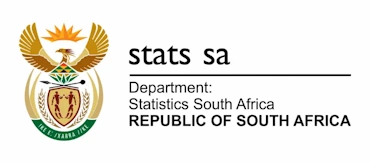Key findings: Report-64-20-01 - Food and Beverages Industry, 2018
Income
The total income for the food and beverages industry in 2018 was R72,3 billion. The total income represents an increase of 9,2% per annum over the income reported in the corresponding survey of 2015 (R55,5 billion). Comparing 2015 and 2018, large increases were reported for ‘restaurants and coffee shops’ and ‘takeaway and fast-food outlets’, both +R6,3 billion. ‘Caterers and other catering services’ reported an increase of +R4,3 billion during the same period.
Between 2009 and 2018, ‘takeaway and fast-food outlets’ gained the biggest percentage share (+4,1 percentage points) in income from the food and beverages industry (from a percentage contribution of 29,5% in 2009 to 33,6% in 2018). ‘Caterers and other catering services’ lost the biggest percentage share (‑4,6 percentage points) over the same period (from 24,4% in 2009 to 19,8% in 2018).
In
2018, the top 100 enterprises in the food and beverages industry contributed 41,9%
to the total income compared with 37,2% in 2009. The
concentration ratios of the top 10, 20, 50 and 100 enterprises were the highest
in 2018 at 19,6%, 26,8%, 35,3% and 41,9% respectively. This illustrates the
growing dominance of the top enterprises in the food and beverages industry in
2018.
Employment
The total number of persons employed in the food and beverages industry as at the end of June 2018 was 205 411. ‘Restaurants and coffee shops’ employed the largest number of persons (103 336 or 50,3%), followed by ‘takeaway and fast-food outlets’ (57 121 or 27,8%) and ‘caterers and other catering services’ (44 954 or 21,9%).
Formal employment increased from 186 103 in 2009 to 205 411 in 2018 (a gain of 19 308 jobs). The biggest gain in persons employed between 2009 and 2018 was in ‘takeaway and fast-food outlets’ (+12 226 persons), followed by ‘restaurants and coffee shops’ (+6 169).
The average for salaries and wages in the food and beverages industry in 2018 was R71 374. The type of service with the highest average salaries and wages in 2018 was ‘caterers and other catering services’ (R78 769), followed by ‘restaurants and coffee shops’ (R71 572). The type of service with the lowest average salaries and wages in 2018 was ‘takeaway and fast-food outlets’ (R65 195). Total average salaries and wages increased from R35 561 in 2009 to R71 374 in 2018, an annualised growth rate of 8,0%. The highest annualised growth rate between surveys in the food and beverages was 9,8% between 2009 and 2012.
Capital expenditure on new assets
The total capital expenditure on new assets in 2018 (R2,4 billion) represents an increase of 6,7% per annum over the expenditure reported in the corresponding survey of 2015 (R1,9 billion). The largest contributor to total capital expenditure was ‘takeaway and fast-food outlets’ (R1,3 billion or 56,3%), followed by ‘restaurants and coffee shops’ (R868 million or 36,9%) and ‘caterers and other catering services’ (R159 million or 6,8%). Comparing 2015 and 2018, the largest increase was reported for ‘takeaway and fast-food outlets’ (+R305 million).
Between 2009 and 2018, ‘takeaway and fast-food outlets’ gained the biggest percentage share (+6,0 percentage points) in capital expenditure on new assets. ‘Caterers and other catering services’ lost the biggest percentage share (‑4,9 percentage points) over the same period (from 11,7% in 2009 to 6,8% in 2018).

